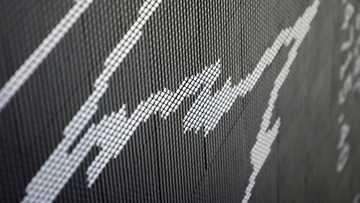Australia lifts key interest rate, flags further rises
Australia's central bank hiked interest rates to an 11-year high Tuesday and warned that further rises may be on the horizon to get surging prices under control.
The Reserve Bank of Australia lifted the key rate 25 basis points to 4.1 percent, its highest level since May 2012, with governor Philip Lowe saying inflation had "passed its peak" but was still stubbornly high.
Most analysts surveyed by Bloomberg had forecast officials to stand pat, while the announcement saw the local dollar jump more than one percent against the US dollar.
However, stocks sank around one percent in Sydney.
"This further increase in interest rates is to provide greater confidence that inflation will return to target within a reasonable timeframe," he said in a statement.
"High inflation makes life difficult for people and damages the functioning of the economy."
Government figures released last week showed prices surged 6.8 percent in April, up from 6.3 percent the month before, outstripping previous forecasts that suggested a drop.
PAY ATTENTION: Follow us on Instagram - get the most important news directly in your favourite app!
"Recent data indicate that the upside risks to the inflation outlook have increased and the board has responded to this," Lowe said.
The latest rate hike heaps further pressure on mortgage holders who are, on average, already forking out hundreds of dollars more each month to meet their repayments.
Lowe acknowledged that many Australian households were feeling a "painful squeeze on their finances".
"Some further tightening of monetary policy may be required to ensure that inflation returns to target in a reasonable timeframe, but that will depend upon how the economy and inflation evolve."
Tuesday's decision comes after the independent Fair Work Commission lifted the national minimum wage 5.75 percent, which will kick in from July 1.
Like other countries fighting inflation, Australia faces a delicate balancing act to bring prices down without stifling economic growth and sparking a recession.
Central banks around the world continue to tighten monetary policy in the face of runaway food and energy prices, exacerbated by the war in Ukraine.
sft/djw/dan
© Agence France-Presse
Source: AFP



